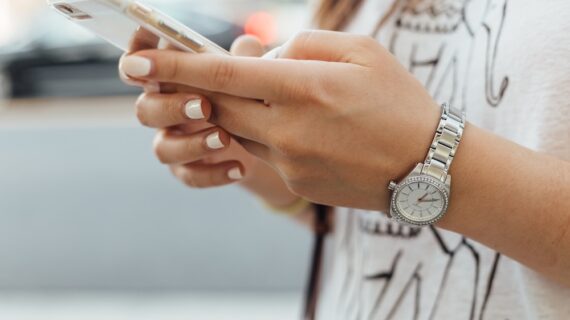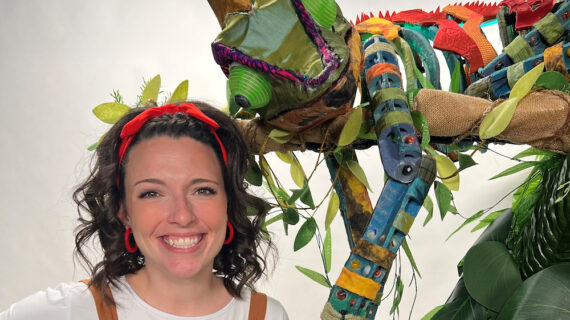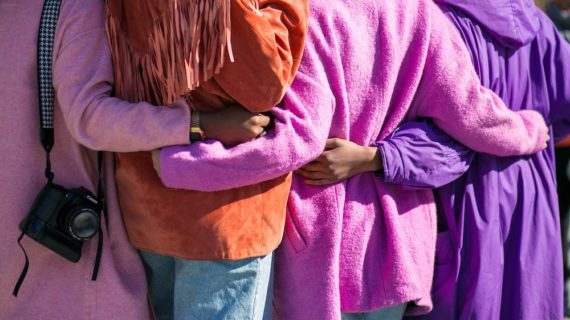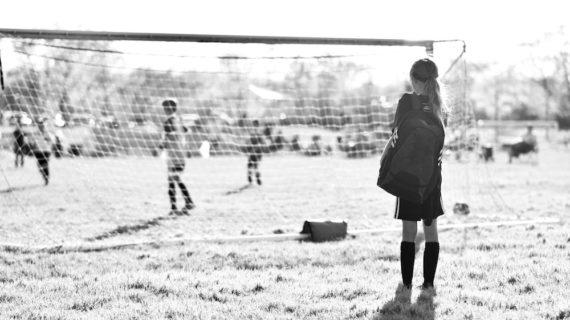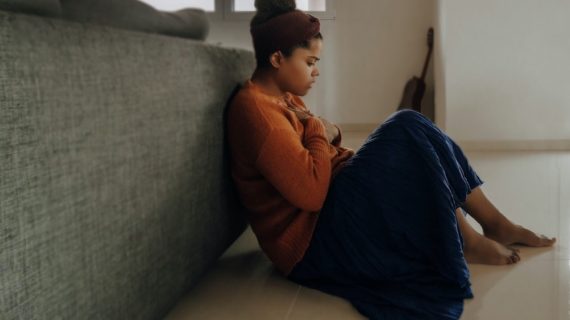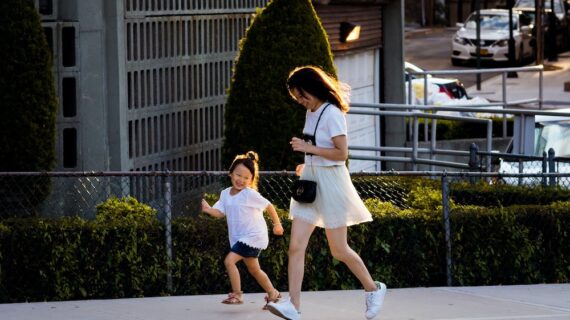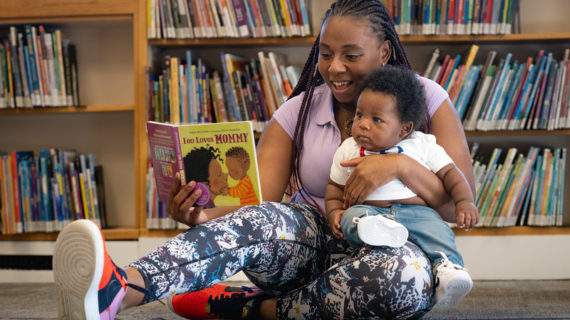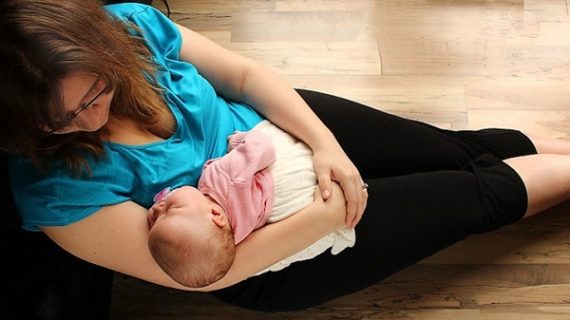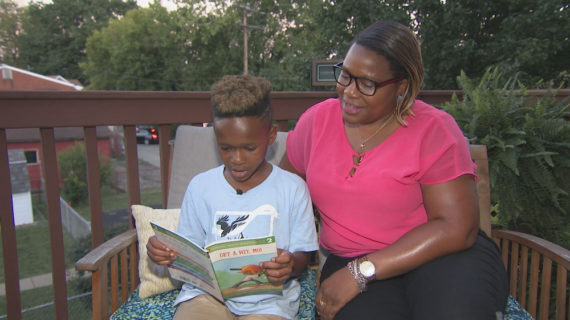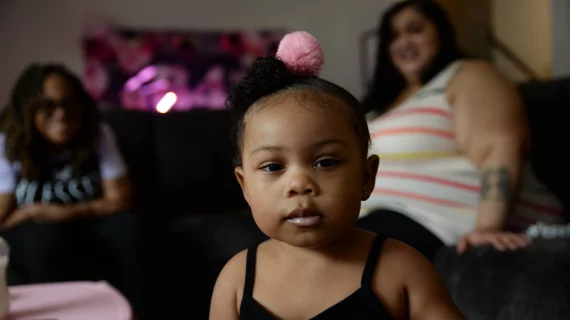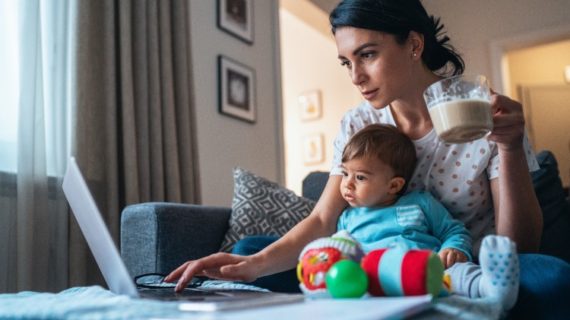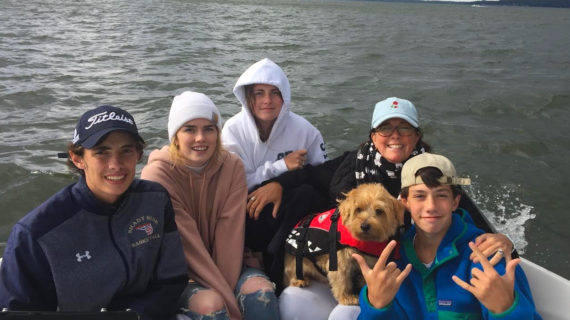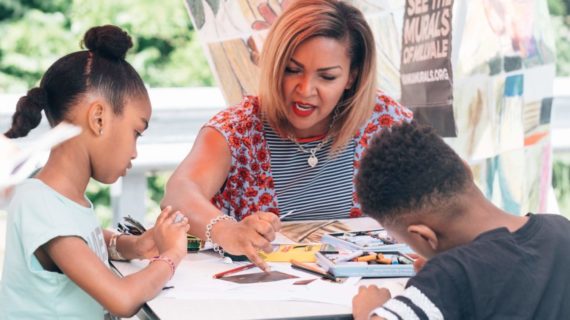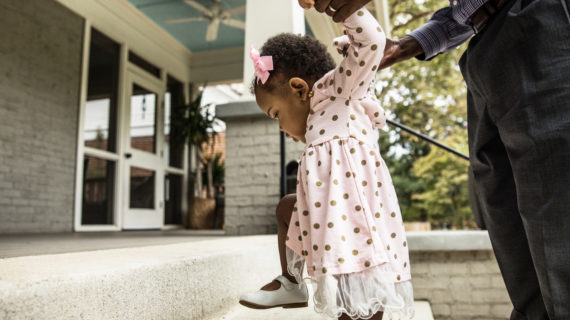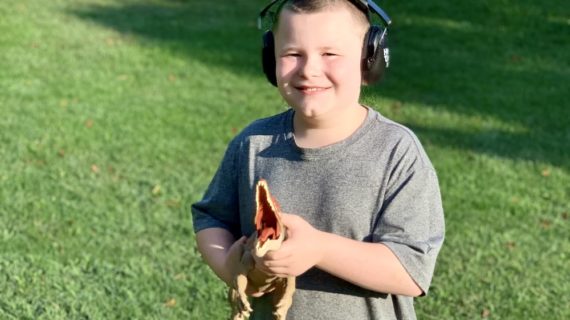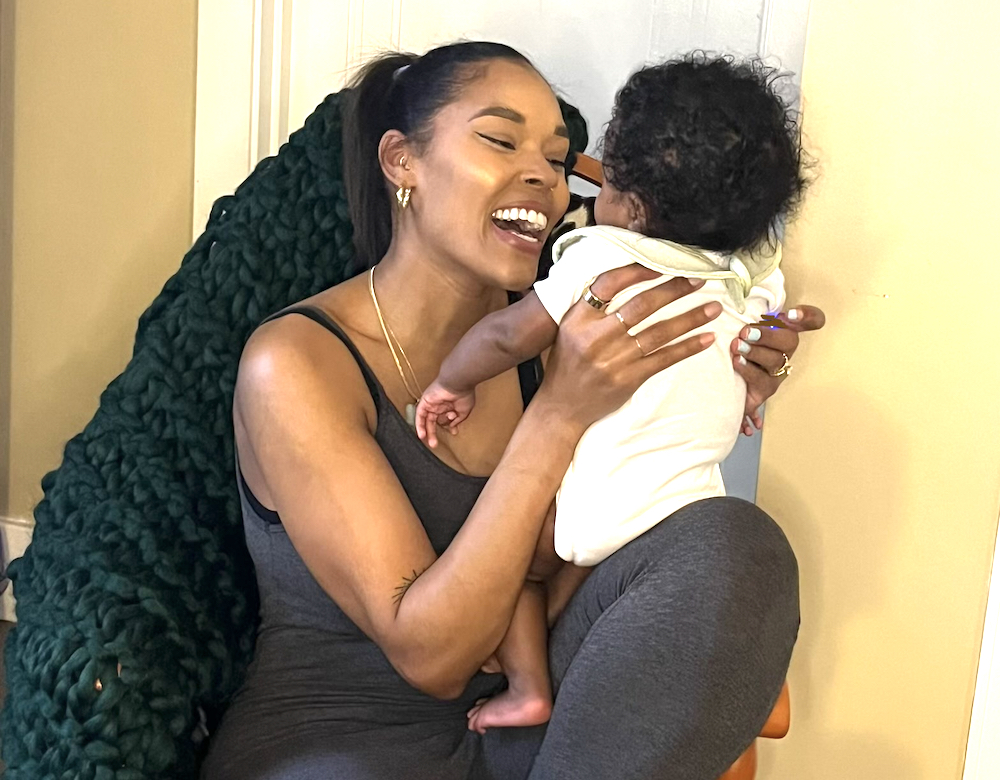
From miscarriage to motherhood: Standing up for your health and well-being
On December 12, 2022, my little sister became a first-time mom of a little boy. I still can’t believe it. Out of four siblings, I was always called the “second mom” due to the way I cared for the others. Meanwhile, she thought kids were gross and vowed to only have them if her husband wanted a family. Now, look: I’m the childless one and she is one of the best moms out there!
She makes it seem so natural. But it was a journey to get pregnant and she’s learned important lessons along the way. Recently, we took a few moments to reflect on her experience — and we wanted to share this conversation with the Kidsburgh community. It will probably be reassuring for some and bring insight to others. Our hope is that by sharing her experience, the next woman is more equipped, empowered and emboldened to stand up for her health and well-being.
Brittany: Sister, I can’t believe you’re really a mom and you’re so good at it! I’m so proud of you. Journey is 6 months old now! You make it look so easy. Be real with me, how has it been? Give me the good, the bad and the ugly.
Cheyenne: This experience has been otherworldly! I know it’s been six months, but it still hasn’t been enough time to swallow the pill that I am a mother! I still look at Journey everyday in awe and can’t believe he came out of me or that he’s here. But as exciting as it has been, there have also been some dark moments. Leading up to his arrival, I was obsessed with learning everything I could about pregnancy and newborns. I wanted everything to be right for my little Journey. Yet, through all that planning, nothing prepared me for the mental changes that would occur the moment he arrived.
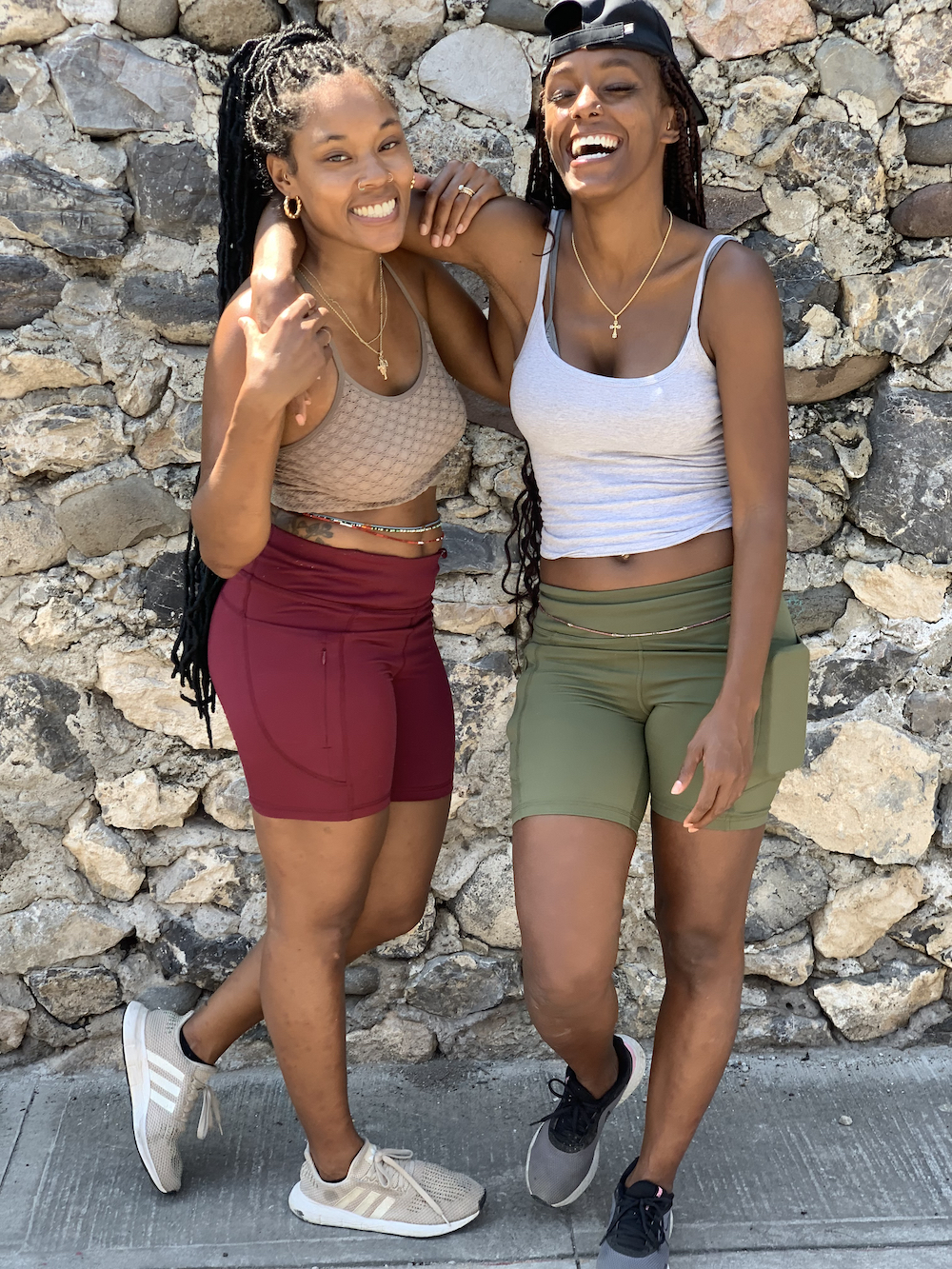
In the hospital, everything hit me. This little seven-pound bundle of life is helpless and I have to do everything in my power to keep him healthy and safe. Instantly, every person and thing became a potential danger to me. I was hypersensitive to anyone sneezing, coughing, blowing their nose, etc., near us. I felt like I could physically see germs on EVERYTHING. I was terrified that he was going to catch something. I drove myself mad thinking of all of the dangerous things and objects around us and how I couldn’t control it all. It was so bad that my hands cracked within days because I spent so much time scrubbing them each time before I held him.
Interacting with other people was also different: I was overwhelmed with love and gratitude for a safe delivery, but I was also instantly drowned by texts and phone calls. After being on my back for three days in labor and experiencing one of the most intense physical traumas of my life, I felt like MY experience was totally disregarded because everyone just wanted to see “the baby.” That was extremely hard for me. It made me regret telling everyone my due date (I advise giving the due date a month later, so you can have a month to yourself and baby before your friends and family overwhelm you). I knew they were coming from a good place, but there was a huge disconnect from me as the mother versus whatever Journey was to them as a nephew, grandson, godson, new baby, etc.
At the same time, one of the most surprising things I learned about myself after giving birth was how strong and deep my love could be for someone I just met. I was overwhelmed at how fierce my love for my son could go. I look at him and I’m willing to do anything necessary to ensure his livelihood. I would be willing to cut off friends and family if I ever felt they were a threat to his well being. Those types of thoughts never occurred to me before him. These are relationships that mean so much to me with people I’ve known my whole life. Before him, everything was negotiable. Now my mind is constantly in protection mode. It’s exhausting and almost scary how fiercely protective I am over him and what I would do for him.
Brittany: Wow! I didn’t even know some of those things (and you better tell me your due date for the next baby — I’ll keep it a secret *wink wink). Seriously though, I can only imagine all of the feelings mixed with uncertainties and emotions you went through then and still today. I imagine they will continue as he’s your child forever.
Prior to having Journey, you had a miscarriage. How was the pregnancy experience and did your health priorities change the second time around?
Cheyenne: I only made it eight weeks with my first pregnancy. I found out around six weeks, so I never really had a chance to establish a care team. I made the initial appointment at Magee Women’s Hospital that would confirm the pregnancy and listen for a heartbeat, but we lost the baby two days before the appointment.
The second time around, I knew I wanted a Black doctor. I was well aware of the dangers of childbirth as a Black woman in America (Black women are three times more likely to die in childbirth than white women according to CDC statistics — read more here about racial health disparities in America). I wanted a support system that truly saw me as a person and wanted to ensure the safety of not only myself, but my baby as well. I found BrownMamas.com and I called every Black OB-GYN listed on their website. Most of them weren’t taking new patients or were booked for months. Finally, I found someone with an opening who was highly esteemed. Dr. Amaris Yandel was more than I could have hoped for! She was informative, knowledgeable and paid attention to things specific to being a pregnant, Black woman. I wasn’t just a patient. It meant so much to me that Journey was brought into this world by a village of people that could understand what life would be like in this world outside the safety of my womb.
Brittany: Thank God for Dr. Yandel and all those in the healthcare industry that understand the importance of diversity (racially, culturally, linguistically, etc.) in the medical field. It sounds like although the process was inherently unnerving, having a good care team that you were comfortable with and listened to helped immensely. So, what lessons have you learned in advocating for your own health?
Cheyenne: At the end of the day, no one else has been in my body. If something is wrong and I feel it, I follow my gut. I learned this the hard way when a white OB-GYN refused to provide an ultrasound when I found a lump in my breast. She thought the ultrasound was unnecessary and told me, “I can’t just ask for something like that.” She was extremely dismissive. After going back and forth with her and proving to her that there is no possible way she could confirm it wasn’t cancerous, she eventually wrote a script for an ultrasound. Thank God, it wasn’t cancerous. But I made sure to get it fully checked out. If I didn’t fight for myself, the story could have been much worse.
Brittany: That’s so alarming. I’m sorry you had to fight so hard for that. Now, you have another person to advocate for. How do you approach advocating for your son’s health?
Cheyenne: I always do my own research. I try to inform myself as much as I can about my concerns, and I don’t just take the doctor’s word because they’re a doctor. I take their advice along with my own research and discuss it with my husband. We make decisions that we feel are in the best interest of our son. I noticed when you step into an office already knowledgeable about a subject or ask questions that show you’ve done your research, you are treated differently. Doctors talk to you as a peer rather than as a child who will follow them blindly.
Brittany: I think the same applies for advocating for yourself as an adult, too. Going into an informed appointment shows that you take your health seriously and you expect them to do the same. So, how has your relationship with your body changed? What are you doing about it?
Cheyenne: The “Mom Bod” is real! My body looks so much different now than it did for the past 30 years. Somedays I am OK with my new body. Other days I mourn my “Hot Girl Summer” body. I’m so grateful for the amazing things it’s accomplished over the last several months and continues to do while I breastfeed. I think the part that caught me most by surprise is the physical toll breastfeeding alone has taken on my body. I don’t even recognize my boobs anymore. I look at them like, “These don’t belong to me.” I had to reintroduce myself to them. The other day, I stood in the mirror and talked to them, thanking them for all they do. For working non-stop around the clock to produce food and nourishment for my baby. It is a privilege to be able to successfully breastfeed and I never want to take my body for granted.
Brittany: Sister, you look great, but I know how important it is for you to feel it, too! And you’re right, a woman’s body does so much to take care of her baby and herself. I don’t think we will ever fully grasp that. OK, last question: As someone who didn’t always speak up for herself or her health, what advice would you give to a woman — a mother, aunt, or anybody — trying to take more control of their health?
Cheyenne: I would tell them don’t ever let someone dismiss your medical concerns. No one has ever been you, so they can’t tell you about yourself. Before I had Journey, the IUD was my birth control. For a year straight, I suffered from extremely painful cramps and constant bleeding. I could physically feel the IUD inside of me. I scheduled an appointment at Magee with the next available doctor. He was white and male, and after hearing why I came in that day, he told me he didn’t feel comfortable removing my birth control without having another form of birth control ready. I became furious. Sternly yet politely, I told him that was none of his business and I didn’t care if I had 10 children after he takes it out. My choices about getting pregnant or not getting pregnant had nothing to do with him and he needed to stay in his place. It turns out that my body was rejecting the implant and treating it like a foreign object. I am so proud of myself for standing firm. If I would have let that doctor tell me what he wanted, I would have been in constant pain until I found someone else willing to take it out. The moral of the story is always do what is best for you!
Brittany: Cheyenne, I’m so proud of you! I’m proud of you for standing up for yourself and continuing to do so each day and for taking such good care of your son. Hearing your experience has been so encouraging for me to continue doing what’s right for myself. Hopefully, it does the same for everyone who will read our article. Thank you for opening up.
